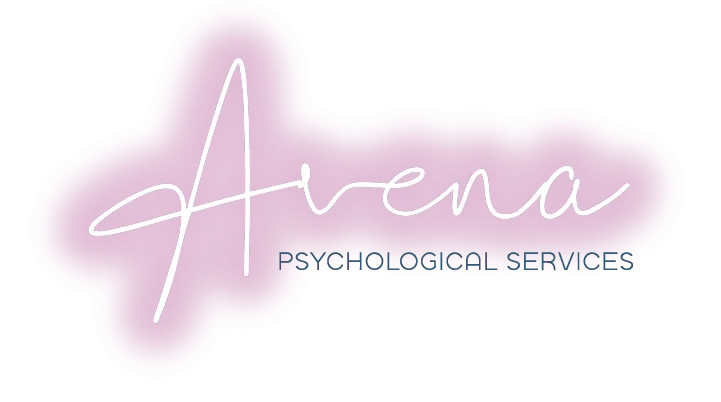You love your kids. That’s never been the question. But some days—maybe most days lately—you feel like you’re running on fumes.
The smallest request sends you over the edge. You crave alone time like it’s oxygen. You snap, then feel guilty. You’re tired down to your bones, but your brain won’t stop spinning.
And even though you’re doing everything, it still doesn’t feel like enough.
This is mom burnout. And if you’re nodding along right now, you’re not the only one.
At Avena Psychological Services, we talk to moms every day who feel like they’re quietly falling apart while holding everything (and everyone) else together. And we want you to know something that might be hard to hear—but important: You’re allowed to need help. You’re allowed to fall apart sometimes. And you absolutely do not have to do it all.
Let’s unpack what mom burnout really looks like, how to recognize the signs, and what healing can actually look like—without shame, guilt, or pressure to “bounce back.”
What are the signs of mom burnout?
Mom burnout doesn’t always look like a dramatic breakdown. More often, it’s a slow, invisible erosion. A quiet disconnection from yourself. A fading of joy, energy, and patience.
Here are some common signs of mom burnout:
- Constant irritability or emotional outbursts over small things
- Feeling numb, exhausted, or disconnected from your life
- Trouble sleeping, even when you’re tired
- Resentment toward your partner, kids, or responsibilities
- Guilt—for feeling overwhelmed, for not “doing enough,” or for needing space
- Physical symptoms like headaches, stomach issues, or frequent colds
- Loss of motivation or interest in things you used to enjoy
You might tell yourself it’s just a rough week. Just a phase. Just hormones. But if this has been your reality for weeks or months, mom burnout may be setting in.
And it matters. Because when you’re burnt out, you’re not just tired—you’re depleted. And no amount of “trying harder” will fix something that needs rest, care, and support.
How to recover from burnout as a mom?
There’s no magic fix for mom burnout, but recovery is absolutely possible. It starts with permission. Permission to step back, to let go of perfection, and to ask for what you need.
Here’s how to start recovering from mom burnout:
- Name it. Say it out loud: “I’m burnt out.” Not a bad mom. Not failing. Burnt out. That acknowledgment opens the door to healing.
- Do less. Not everything is urgent. Not everything has to be done by you. Lowering the bar doesn’t mean you don’t care—it means you’re honoring your capacity.
- Find pockets of rest. Maybe it’s five minutes alone in the bathroom. Maybe it’s a short walk without your phone. Micro-breaks matter.
- Ask for help—even if it feels hard. From your partner. From a friend. From a therapist. You don’t get extra points for doing it all alone.
- Release the guilt. Guilt says, “I’m a bad mom.” Compassion says, “I’m a good mom who needs care too.” The second one is true.
At Avena, we often remind our clients: You can love your children and still need space from them. You can be grateful and still overwhelmed. These things can coexist. And healing begins when we let them.
What is depleted mom syndrome?
Depleted mom syndrome is another way of describing what happens when caregiving becomes chronic over-functioning—without enough support, rest, or emotional nourishment.
It often shows up as:
- Fatigue that doesn’t go away with sleep
- Mental fog or trouble concentrating
- Loss of identity (“I don’t even know who I am anymore”)
- Emotional swings—anger, sadness, guilt, numbness
- Feeling invisible, resentful, or constantly behind
It’s what happens when you pour from an empty cup for too long. And the truth is, our culture expects moms to do this. To sacrifice endlessly. To smile through the exhaustion. To keep giving without asking, “What about me?”
But you’re not meant to run on empty. You’re meant to be supported, nourished, and seen. Therapy can help rebuild that foundation—starting with your right to take up space.
Mom burnout doesn’t make you weak. It makes you human in a system that asks too much.
What is mother-wife burnout?
Mother wife burnout is the double-layered exhaustion that comes from being everyone’s everything. The caregiver. The emotional anchor. The default parent. The one who remembers the dentist appointments, buys the birthday gifts, manages the feelings, cooks the meals, plans the playdates—and still tries to make time for a relationship.
This form of mom burnout is especially common in households with traditional gender dynamics, where emotional labor falls primarily on one partner.
It might look like:
- Feeling like a roommate, not a partner
- Emotional distance or resentment building in your marriage
- Carrying the mental load while your needs go unmet
- Guilt for wanting more—or wanting less from everyone around you
You may love your family fiercely and still feel suffocated by your role. That doesn’t make you ungrateful.
It makes you honest.
At Avena, we work with moms navigating this exact tension. Reclaiming boundaries. Finding language for what they need. And learning that they can ask for support without feeling selfish or unworthy.
Final Thoughts: You Were Never Meant to Do It All
Here’s something radical: You don’t need to be everything for everyone. You don’t have to fix all the problems. You don’t have to be the emotional glue, the household manager, the peacekeeper, and the perfect parent all at once.
Mom burnout thrives in silence. In isolation. In the lie that asking for help means you’re failing.
But the truth? Asking for help means you’re paying attention. It means you’re wise enough to know your limits—and brave enough to say, “I deserve care too.”
At Avena Psychological Services, we offer support for moms in every season: the brand-new, the in-between, the completely worn down.
Whether you’re in the thick of mom burnout, starting to feel the cracks, or just need a safe space to breathe, we’re here.
You don’t have to earn rest.
You don’t have to explain why you’re tired.
You don’t have to hold it all together to be worthy of help.
Let us help you come home to yourself—one small, gentle step at a time.
Because when moms are supported, families thrive. And when you stop trying to do it all, you can finally start feeling like yourself again.
Meet The Therapists You'll Work With & Get Scheduled Today!

Michael Cruz, LMHC
Licensed Mental Health
Counselor – NY

Luisa Enriquez, LSW
Licensed Social Worker – NJ

Katalin Vinczi-Sierra, LCSW
Licensed Clinical Social Worker – NJ
Contact us to schedule an appointment with a professional in New York or New Jersey.

